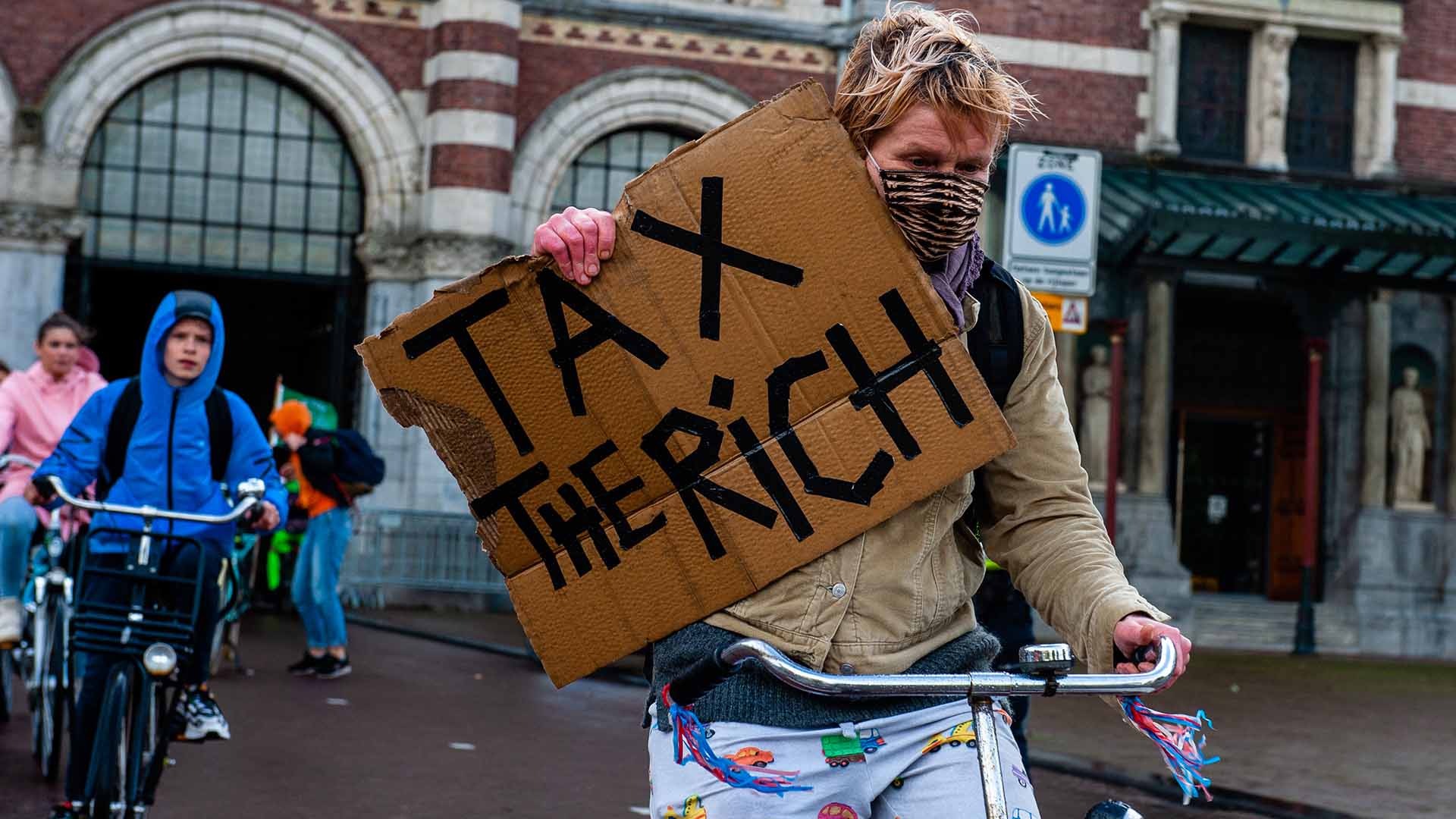Tax justice experts, accounting firms and corporations’ tax planning officers around the world are on the watch for a set of upcoming tax changes that could affect everything from digital services, to energy products and more.
In addition to new taxes already on the table, some also see 2021 as an opportunity to introduce policies that could help governments tackle economic issues exacerbated by the coronavirus pandemic, and reduce inequality.
The International Consortium of Investigative Journalists has asked international tax experts what changes they’re anticipating.
“In 2021, we expect to see a heated discussion about how to design the future tax systems at both the national and international levels,” Tove Ryding, policy manager at the European Network on Debt and Development, told ICIJ.
“These tax debates point to the very sensitive question of ‘who should pay the corona bill?’” Ryding said. “The extremely high levels of debt, as well as the fact that many billionaires and corporations have seen their wealth and profits grow to new highs during the COVID-19 crisis, only make this debate even more important and urgent.”
COVID-19 recovery
In 2020, global debt soared to more than $270 trillion due to governments and companies’ response to the COVID-19 pandemic, according to the Institute of International Finance. And the pandemic, with its ensuing impact on countries’ finances, is not over yet.
In such an economic context, “the immediate priority should be to support people during the crisis,” Stuart Adam, an economist with the Institute for Fiscal Studies in London, said.
The next steps should be “to stimulate recovery as needed and only in the longer term (well after 2021) to deal with the massive deficits and debts that are being built up,” Adam wrote in an email to ICIJ.
Each country will then have to choose the most appropriate policy to help with support, stimulus and deficit reduction. And tax policy is only one of the tools available, Adam said.
In Asia, for instance, Malaysia was one of the countries most praised for its response to the coronavirus, despite being in the middle of a political crisis at the beginning of the pandemic.
“2021 is a transition year from crisis to recovery,” for the country, Finance Minister Tengku Zafrul Abdul Aziz said, according to Maybank Investment Bank Research.
To raise much needed revenues to fight the health emergency, the Malaysian government is currently evaluating several measures, including the introduction of a tax on goods and services, former government adviser and Monash University Malaysia professor Jeyapalan Kasipillai said.
Multinational corporations and digital services
“The big ticket item in 2021” is the digital tax reform plan at the Organisation for Economic Co-operation and Development, according to Rasmus Corlin Christensen, an economist at the Copenhagen Business School. And so is the global minimum tax scheme, he said.
After lengthy negotiations, the OECD ー which groups 137 countries and jurisdictions ー is expected to agree on new rules by next summer that would introduce a minimum level of corporate taxation worldwide and ensure that multinationals pay taxes regardless of their physical presence, including tech companies that provide digital services, like Google or Facebook.
In a statement last October, the OECD acknowledged the need for a solution and said that, as a result of the pandemic, the public has been putting pressure on governments to ensure that multinationals “pay their fair share and do so in the right place.”
As the negotiations continue, tax justice watchdogs like Ryding will monitor whether the new rules will benefit small developing countries too.
Environment
Europe will see “interesting tax changes” in 2021, said Stefan Speck, project manager at the European Environment Agency, who pointed at a few environmental policies across the bloc.
As part of the $881 billion recovery package proposed to mitigate the effects of the pandemic, the European Union has approved a so-called “plastic tax” on non-recyclable plastic.
The tax, which will fund the recovery plan, “has nothing to do with an EU-wide plastic tax,” explained Speck.
Each EU member state can choose whether to finance it by directly taxing the plastics sector or through other methods of taxation. The amount each state owes will be calculated according to the weight of non-recyclable plastics packaging waste it produces.
In an effort to reduce greenhouse gas emissions, the Netherlands and Luxembourg have also decided to implement a carbon tax. Germany has introduced carbon pricing targeting the transport and building sectors.
Wealth
In the U.S, many will watch whether President-elect Joe Biden will be able to implement the changes he proposed during his campaign: higher tax bills for large corporations and wealthy individuals. The Democrats’ recently obtained control of the Senate may give him a “much stronger chance of success,” according to the Wall Street Journal.
In the meantime, University of California Berkeley professor and economist Gabriel Zucman said he advocates for two taxes.
“An excess profit tax, on the abnormally high profits made by some multinational companies (such as Amazon) during the pandemic,” he explained. Last year, the e-commerce giant posted the biggest profit in its 26-year history, according to Reuters, mainly due to a surge in its online sales and business supporting third-party merchants.
And a “progressive wealth tax,” like the one proposed in 2019 by Democrat senators Bernie Sanders and Elizabeth Warren for people with net worths above $50 million.
World Bank adviser Jim Brumby agrees on the need for a wealth tax to reduce inequality and fiscal deficits around the world generally.
“If ever there were a time that wealth taxes could help, it may be now,” Brumby wrote on the bank’s blog.
“Rather than seeing the resolution of the impending public finance crisis as a problem where ‘something’s gotta give’, an annualized wealth tax provides a way to meet at least a part of the problem through ‘someone’s gonna give.’”



